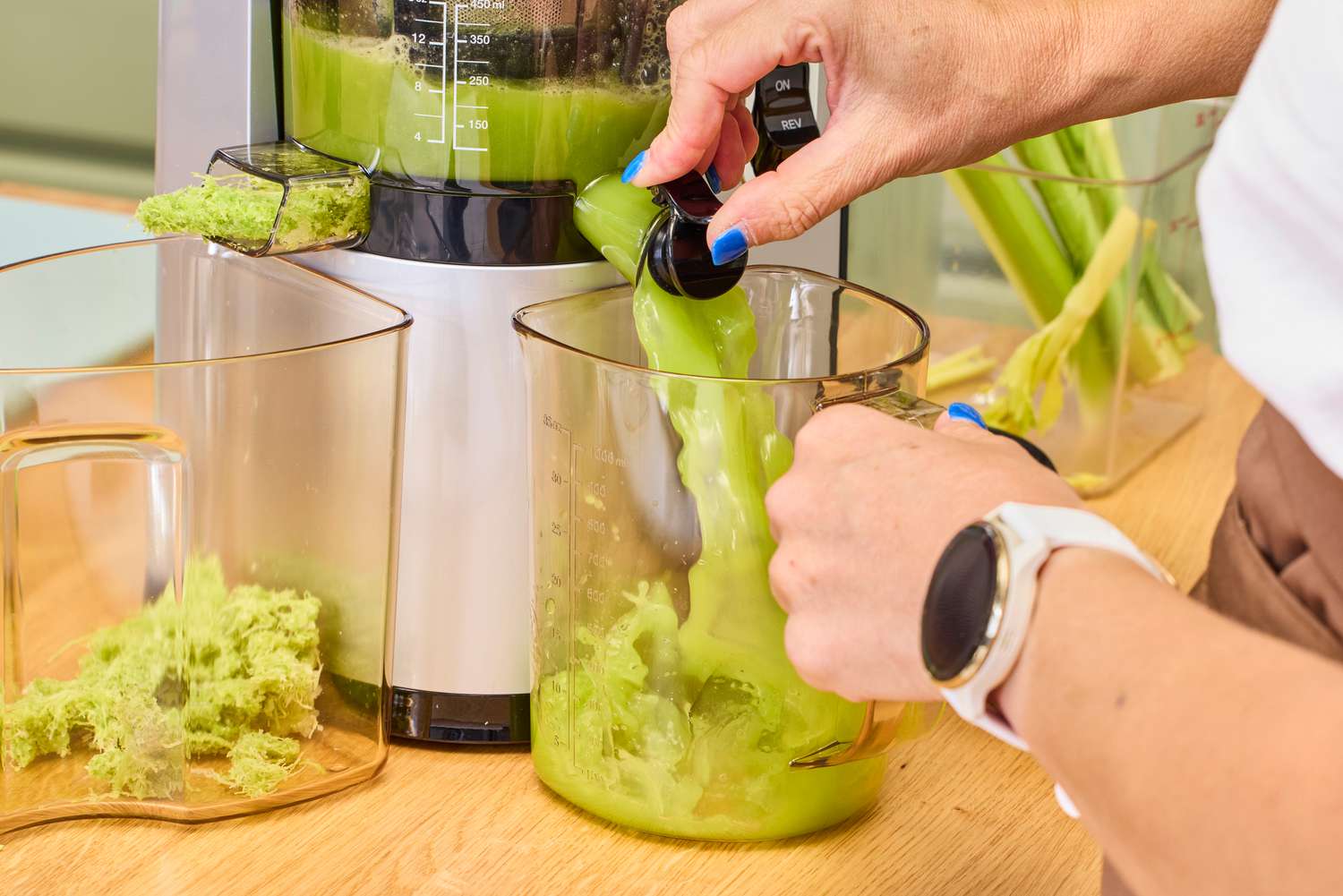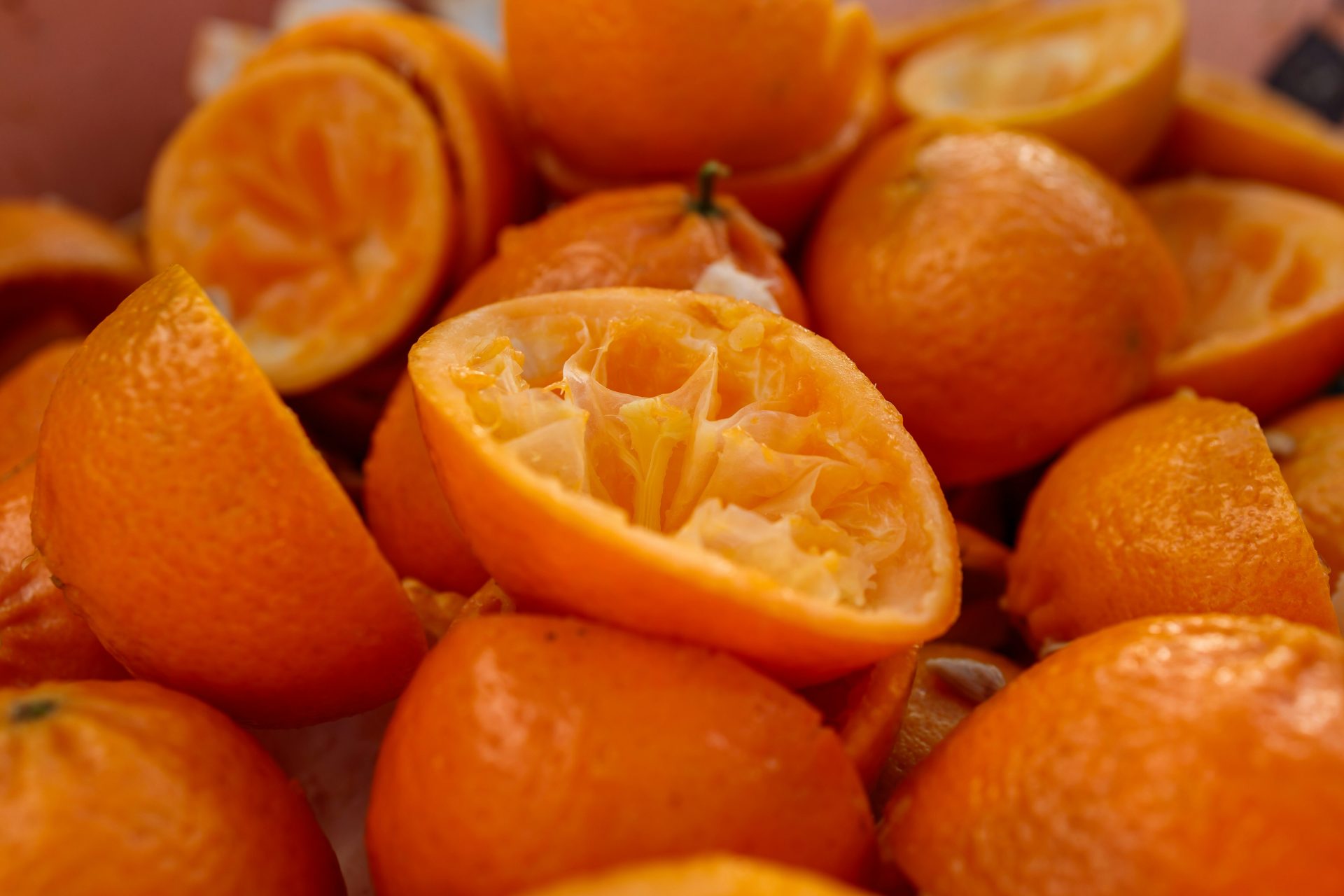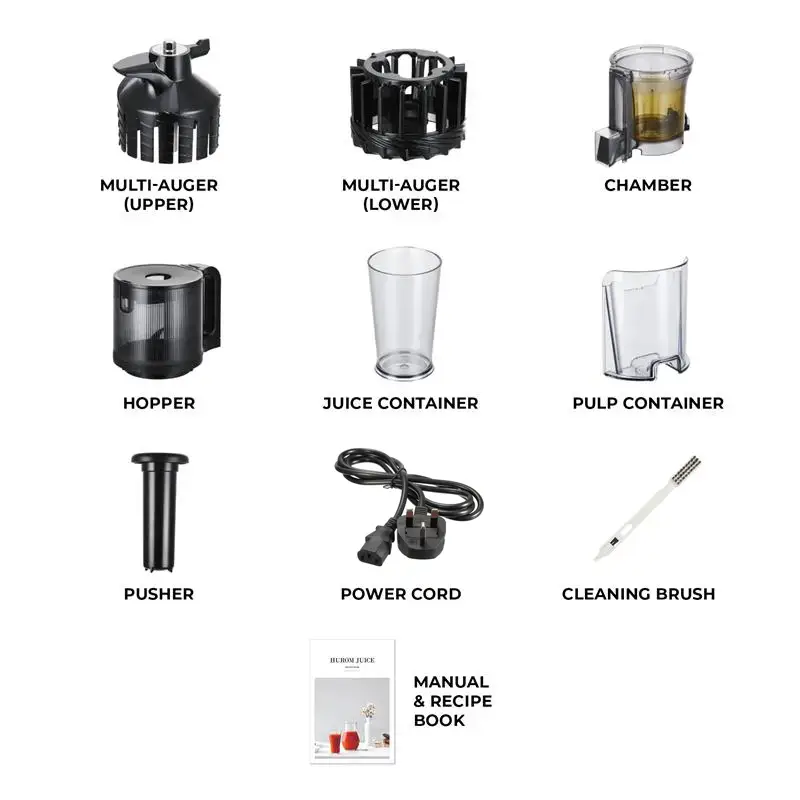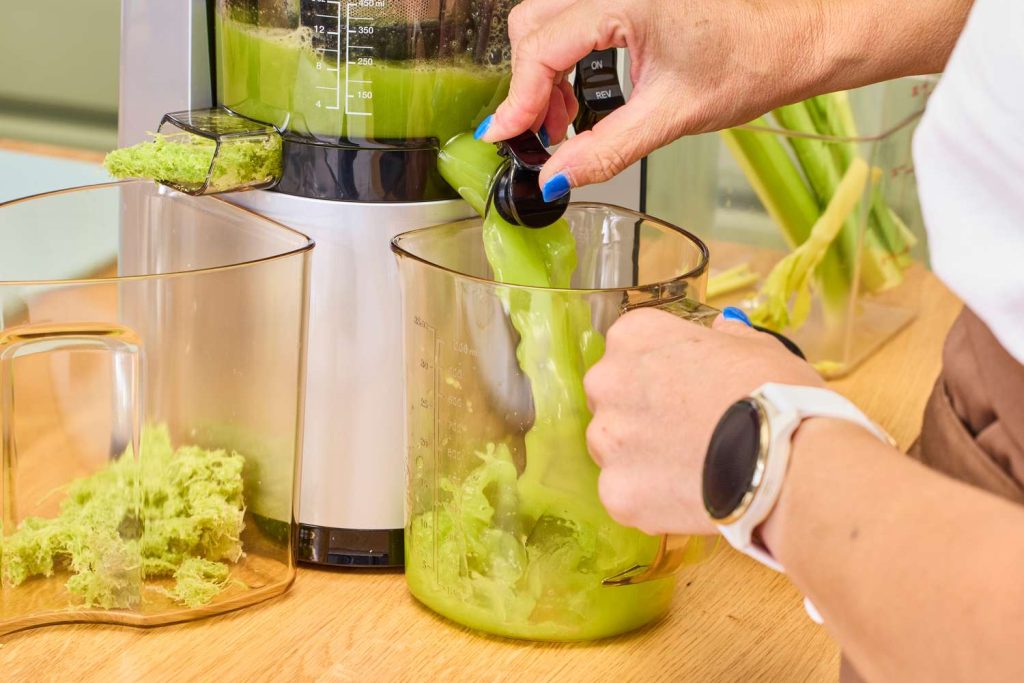
Start your mornings with fresh juice that’s quick, healthy, and simple to make. This guide walks you through the best juicers for fresh mornings in 2025 — from fast centrifugal machines for rushed family routines to slow masticating models for maximal nutrient yield. We tested and compared yield, cleanup time, noise, and everyday usability so you can pick the right juicer that actually fits your kitchen and lifestyle.
Quick comparison
| Rank | Model | Type | Key Features | Price Range |
|---|---|---|---|---|
| #1 | Omega J8006HDS | Slow / Masticating | High yield, leafy greens, family-friendly | $200–$300 |
| #2 | Breville JE98XL | Centrifugal | Fast, wide chute, great for mornings | $100–$180 |
| #3 | Kuvings EVO820 | Whole Slow / Wide-Chute | Wide feed, cold-press, premium | $400–$500 |
| #4 | Hamilton Beach 67601A | Centrifugal | Budget, wide chute, simple cleaning | $60–$110 |
| #5 | Hurom H200 | Slow / Easy-Clean | Quiet, modern, easy-clean parts | $300–$400 |
| #6 | Tribest Shine SV-100 | Vertical Slow | Compact, great for single-serve | $150–$250 |
| #7 | Ninja JC151 | Cold Press / Masticating | 2 pulp functions, easy clean | $150–$220 |
| #8 | Cuisinart CJE-1000 | Centrifugal / Die-Cast | Large capacity, strong motor | $120–$200 |
| #9 | AMZCHEF GM3001 | Budget Slow | Reverse, high yield, affordable | $70–$140 |
| #10 | Jocuu 2-Speed | Budget Slow | Quiet operation, 2-speed | $90–$160 |
*Prices are approximate ranges (U.S. retail) and can vary by seller — check the current listing for exact pricing.
1. Omega J8006HDS — slow masticating champion
The Omega J8006HDS Nutrition Center is widely loved for extracting excellent yields from leafy greens and softer produce while remaining quiet and reliable for daily use.
In hands-on use this masticating juicer produces very dry pulp and rich, flavorful juice — especially from kale, spinach, and wheatgrass. It’s slower than a centrifugal machine, yes, but the difference is worthwhile when nutrients and yield are priorities.
Families who want nutrient-dense greens and consistent longevity will appreciate the Omega’s durable motor and low-maintenance design. It’s a long-term kitchen workhorse rather than a quick-juice gadget.
Pros
- Excellent yield for leafy greens
- Quiet operation
- Durable, long-lasting motor
Cons
- Slower than centrifugal machines
- Takes slightly more prep time
2. Breville Juice Fountain Plus JE98XL — fast & family-friendly
The Breville JE98XL centrifugal juicer is built for speed and family-sized breakfasts; it moves whole fruits quickly through a wide feed chute so you can make multiple glasses with minimal prep time.
Noise levels are higher than slow presses but that’s the tradeoff for quick results. For firm produce like apples, carrots, and beets, extraction is solid and cleanup remains manageable for a centrifugal.
We recommend the Breville for households that prioritize time savings and straightforward operation — it’s a reliable, fast daily driver that consistently delivers fresh juice with minimal fuss.
Pros
- Fast, wide chute reduces prep time
- Good juice yield for firm produce
- Affordable mid-range price
Cons
- Noisier than slow juicers
- Less efficient on leafy greens
3. Kuvings EVO820 — premium whole slow juicer
The Kuvings EVO820 whole-slow juicer combines a wide feed chute with low-speed cold-press extraction so you spend less time chopping and more time enjoying nutrient-rich juice.
In our tests the EVO820 produced very dry pulp and full-bodied juice, and the wide chute significantly cut down prep time compared with narrow-chute slow juicers. Build quality and included accessories justify the premium for those who juice daily.
If you want the convenience of whole-fruit feeding plus the benefits of cold-press extraction, the Kuvings EVO820 hits the sweet spot for family kitchens that treat juicing as a regular ritual.
Pros
- Wide feed chute for less prep
- Excellent yield and nutrient preservation
- Premium build and warranty
Cons
- High price point
- Larger footprint on the counter
4. Hamilton Beach 67601A Big Mouth — best budget centrifugal
The Hamilton Beach Big Mouth is an entry-level centrifugal juicer that keeps initial cost low while providing fast, reliable performance for casual juicing needs.
It’s best for hard fruits and root vegetables; leafy greens will be less efficient compared with masticating models. The wide chute and easy assembly make it perfect for those testing whether juicing will stick as a home habit.
For budget-conscious families and those wanting a quick, no-frills juicer, the Hamilton Beach offers dependable day-to-day use without a steep investment.
Pros
- Very affordable
- Fast and easy to use
- Wide chute reduces prep
Cons
- Lower yield on greens
- Shorter lifespan than premium models
5. Hurom H200 — quiet, modern, easy-clean
The Hurom H200 focuses on user-friendliness with a modern aesthetic and parts engineered for straight-forward cleanup — a real plus when you want quick mornings with minimal fuss.
Its quiet motor and efficient auger mean you can make juice without waking the whole household, and the parts detach cleanly for a fast rinse. The H200 is a solid fit for apartments and kitchens where noise and space matter.
If you want slow-press benefits plus an easy-clean experience, the Hurom H200 is a stylish, quiet option that balances performance with convenience.
Pros
- Quiet operation
- Easy to clean parts
- Stylish design
Cons
- Premium price compared with basic models
- Not the fastest option

6. Tribest Shine SV-100 — compact daily performer
The Tribest Shine SV-100 vertical slow juicer is perfect for small kitchens and single-serve enthusiasts — it’s compact yet capable of delivering good yields for its size.
Although throughput is slower than a centrifugal, the Shine is efficient with greens and takes minimal cabinet space. It’s a great “starter” slow juicer for those who want better nutrient retention without dedicating counter real estate.
Choose the Tribest Shine if you live alone or as a couple, and want a quiet, efficient juicer that’s easy to store when not in use.
Pros
- Small footprint
- Good yield for its class
- Quiet operation
Cons
- Not ideal for large batches
- Slower throughput than centrifugals
7. Ninja NeverClog Cold Press JC151 — reliable mid-range cold press
The Ninja NeverClog JC151 is designed to reduce clogs and make everyday juicing simpler with dual pulp settings and dishwasher-safe parts that speed cleanup.
Daily use shows the JC151 is a practical compromise between slow presses and fast centrifugals — it’s quicker than most masticating machines yet still yields a good extraction for frequently used fruit and veggies.
For busy households wanting good yield without long prep times, the Ninja JC151 offers reliable performance and useful anti-clog features that save time and frustration.
Pros
- Reduced clogging with dual pulp modes
- Reasonable yield and cleanup
- Good mid-range value
Cons
- Noisier than true slow presses
- Not as compact as vertical slow models
8. Cuisinart CJE-1000 — large-capacity centrifugal
The Cuisinart CJE-1000 die-cast centrifugal juicer is built for higher volumes and family-sized batches — its strong motor and large pulp bin make it a dependable option for regular use.
It handles firm produce well and is quick for multiple servings, though leafy greens will produce lower yields compared with masticating models. The sturdy construction means it can handle regular family-sized juicing tasks without complaints.
If your priority is speed and capacity for multiple servings, the Cuisinart is a robust, practical choice that balances price and performance well.
Pros
- Large capacity and strong motor
- Fast for batches and family use
- Durable die-cast body
Cons
- Less efficient for greens
- Bulkier on counter
9. AMZCHEF GM3001 — budget cold-press with useful features
The AMZCHEF GM3001 is a budget-minded slow masticating juicer with useful features like a reverse function to clear clogs and included cleaning tools, making it friendly for beginners.
Yield is impressive for the price, and the reverse mode helps when switching between harder fruits and leafy greens. While materials feel less premium than high-end models, the core functionality is solid for daily juicing.
We recommend the AMZCHEF for households that want cold-press quality on a tighter budget — it’s a sensible entry point to slow juicing without the premium cost.
Pros
- Affordable price for slow pressing
- Reverse function reduces clogging
- Good yield for the cost
Cons
- Shorter warranty than premium brands
- Build materials feel less premium
10. Jocuu 2-Speed Slow Masticating Juicer — quiet & practical
The Jocuu 2-speed slow juicer is a quiet, practical model that makes consistent daily juice without the complexity of premium machines; its two speeds help match produce type to extraction speed.
Its compact footprint and easy disassembly make it a good starter slow juicer for homemakers who want calm, morning-friendly operation without premium noise or bulk.
For quiet, regular use and easy cleanup, the Jocuu model gives sensible performance at a friendly price — a solid pick for new slow-juicer owners.
Pros
- Quiet, simple operation
- Good yield for price
- Easy to clean
Cons
- Fewer premium features
- Not as fast for batching
Buying Guide — how to pick the best juicer for your mornings
Slow vs centrifugal — which is right for you?
Slow (masticating) juicers operate at low RPM and preserve more nutrients — particularly for leafy greens — while centrifugal juicers spin quickly for speedy servings. If your morning routine is tight and you mostly juice apples, oranges, or carrots, a centrifugal model will save time. If you prioritize nutrient retention and do leafy blends, a slow juicer is worth the extra few minutes of prep.
Cleaning & maintenance (with example cleaning image)
Cleaning is where many good intentions fall apart. Rinse removable parts immediately after juicing to prevent dried pulp that’s hard to remove later. Models with fewer detachable parts or dishwasher-safe components make it far more likely you’ll keep using the machine daily.

Tip: keep a small brush handy to dislodge fibers before they dry. If you want a near-zero cleanup routine, look for models marketed as “easy-clean” or those with fewer mesh components to scrub.
Noise & footprint
Small apartments and early-morning households should favor quiet models (like Hurom or Jocuu). Centrifugals are louder but faster; slow juicers are nearly always quieter. Also check device dimensions — a heavy-duty juicer may require permanent counter space or a designated cupboard.
Price categories explained
$70–$150 — Budget options and entry-level slow juicers (good for beginners)
$150–$300 — Best value choices balancing yield, build quality, and ease of cleaning
$300–$500 — Premium models: wider chutes, quieter motors, better warranties
Health note: juicing and pancreas health
If you have medical concerns such as diabetes or pancreatic issues, consult a healthcare professional. For more information on juicing and pancreas health, see this Healthline resource on juicing and pancreas health.
Related reading: coffee grinder buying guide, best air fryers for family meals, or our kitchen appliance reviews.
Final Verdict
Best overall: Omega J8006HDS — nutrient retention, quiet motor, and long-term reliability.
Best for busy families: Breville JE98XL — speed and simplicity for multiple servings.
Best premium pick: Kuvings EVO820 — wide chute and premium cold-press convenience.
Frequently Asked Questions
Are slow juicers better than centrifugal?
Slow juicers generally preserve more nutrients and produce drier pulp, which indicates better extraction. Centrifugal units are faster and convenient for fruit-heavy juices.
How often should I clean my juicer?
Rinse immediately after use and deep clean weekly. Quick rinses prevent dried pulp build-up and extend the life of the machine.
Can juicers handle leafy greens?
Masticating juicers handle leafy greens best. Centrifugals can do them, but yields and efficiency are typically lower.


